Iran's FM Claims Initiatives On Table In Nuclear Talks
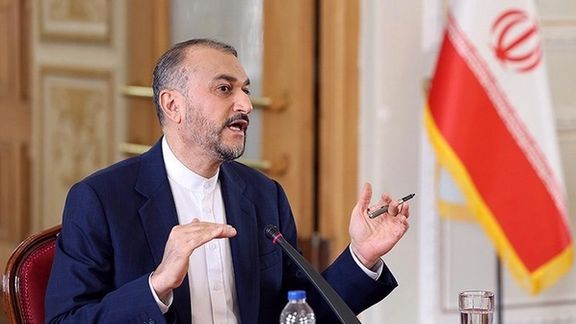
Iran's foreign minister claims there are ‘initiatives’ being discussed in the nuclear negotiations following discussions with his Omani counterpart in Tehran.

Iran's foreign minister claims there are ‘initiatives’ being discussed in the nuclear negotiations following discussions with his Omani counterpart in Tehran.
The primary objective of Omani FM Sayyid Badr Albusaidi's visit was to deliberate the JCPOA and further explore the ‘initiatives’ put forth by the Omani side in pursuit of resolving the nuclear agreement's impasse, Hossein Amir-Abdollahian revealed in a statement on Wednesday.
The unanticipated visit of Oman's senior diplomat sparked media speculation regarding the fate of the JCPOA revival talks. Notably, during the visit, Iran's market experienced a decline in the dollar's value to 480,000 rials, with media outlets like Etemad Online attributing this development to Minister Albusaidi's discussions in Tehran.
In light of this, Amir-Abdollahian stressed Oman's "dedication to bridging the gap between all parties involved in the JCPOA and restoring their adherence to the agreement's commitments.”
Oman has played a crucial role as a mediator between Iran and the United States in the nuclear negotiations, exemplified by the recent indirect talks reported between Tehran and Washington in Oman.
Highlighting the longstanding diplomatic ties, Amir-Abdollahian also referred to the Sultan of Oman's meeting with the leaders of the Islamic Republic during his visit to Tehran in late May. It was revealed that the discussions during the recent visit between the foreign ministers also included deliberations on the bilateral agreements between the two sides.
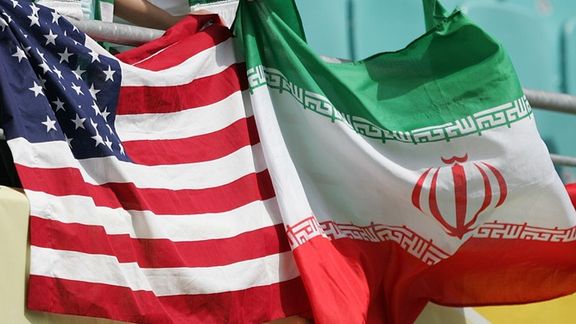
While the chances of reviving Iran’s 2015 nuclear appear dim, an Iranian politician claims that Washington and Tehran have established a hotline for communication.
Former chief of the Iranian parliament's national security and foreign policy committee Heshmatollah Falahatpisheh said Wednesday that “What exists between Iran and the United States now is similar to the 'red telephone line' that existed between the United States and the Soviet Union during the Cold War.”
He added, “I proposed a similar suggestion in the parliament to establish a direct hotline of communication between Iran and the United States to manage the tensions.”
Established in 1963, the Moscow–Washington hotline links the Pentagon with the Kremlin. Although the hotline was never a telephone line, and no red phones were used, in popular culture it is known as the "red telephone.”
His remarks come after recent reports that the two sides were striving to reach an unofficial unwritten agreement to prevent escalation. However, many US lawmakers from both sides of the aisle have called on the Biden administration to come clean about its dealings with the Iranian regime, particularly after the US special envoy Robert Malley was dismissed last month, with Congress in the dark.
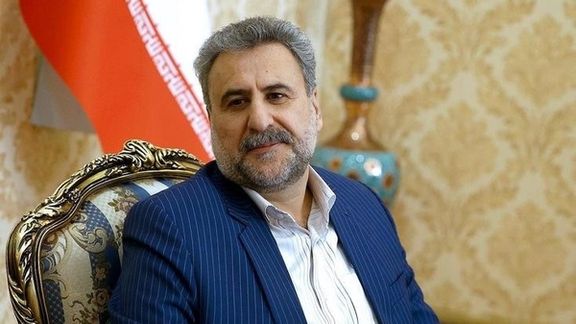
Falahatpisheh said that in a situation when reviving the JCPOA (Joint Comprehensive Plan of Action) seems practically unattainable, this kind of communication is the best possible outcome Iran and the United States could achieved.
“What is referred to as the 'unwritten agreement' is essentially the formation of this hotline for communication. Iran and the United States have not reached a formal agreement, but they are managing the existing tensions in their relationship,” he said.
He underlined that “The establishment of this hot line does not imply anything specific except that the two countries have direct and indirect (mostly secretive) interactions with each other at any given time, discussing tensions and preventing crises from escalating.” He made it clear that “there is no written agreement taking shape.”
The Biden administration says that it continues contacts with Tehran, but no nuclear or prisoner release agreement is imminent.
According to Falahatpisheh, Washington’s lax enforcement of sanctions on Iran's oil exports and Tehran’s tendency to avoid tensions in the Persian Gulf are the outcomes of such a mechanism to manage differences.
But some events could be seen as contradicting this scenario. The US military announced in early July that it intervened to prevent Iranian naval vessels from seizing two commercial ships in the Persian Gulf.
Pentagon announced on Monday that it was sending more warplanes and an additional warship to the region, mainly to provide maritime security.
Meanwhile, US lawmakers are intensifying efforts to restrict the Biden administration in its interactions with the Iranian regime.
On Monday, Michael McCaul (R-TX), the chairman of the US House foreign affairs committee, threatened a subpoena if the administration does not brief Congress on the circumstances of Rob Malley’s dismissal, noting that the State Department has been less than candid with his security clearance investigation.
However, the administration still sounds reluctant to divulge any information as White House Press Secretary Karine Jean-Pierre dodged questions about the investigation on Tuesday.
Moreover, on the backdrop of a flurry of Congressional initiatives and letters to the administration, eight Republican Senators wrote to Secretary of State Antony Blinken and the Secretary of the Treasury Janet Yellen, demanding more serious enforcement of US sanctions on Iran.
The senators raised the issue of China’s increasing oil imports from Iran, while US sanctions prohibit third parties from buying Iranian oil and oil products. “Despite sanctions, the People's Republic of China (PRC) has purchased roughly $47 billion in Iranian oil since President Biden took office,” the letter says.
Despite the push by lawmakers, Washington has made a change in the way Iraq pays Iran for electricity. According to an exclusive report by Reuters, the Biden administration on Tuesday moved to let Iraq pay Iran for electricity via non-Iraqi banks.

Media in Iran speculated on Wednesday that the visit of Omani foreign minister Sayyid Badr Albusaidi a day earlier could signal a deal with the United States.
Many news websites in Tehran said that Albusaidi visited Iran for a crucial diplomatic mission, as part of Oman’s traditional mediating role with the United States.
In recent months, US officials have travelled to Oman and held indirect talks with Iranian counterparts, presumably over the fate of American dual nationals held hostage in Tehran. Reports have suggested that the US is willing to allow $7 billion of Iranian funds frozen in South Korea to be released in exchange for the freedom of these prisoners.
Tejarat News, a business website in Tehran said that the currency market is awaiting positive news from the visit of the Omani top diplomat to sell off US dollars. Iran’s rial is near an all-time low against the US currency due to a very high inflation rate said to be at least 70 percent.
On Wednesday, the rial was trading slightly higher at around 486,000 to the US dollar.
Iran’s economy has been starved of most of its oil export revenues since 2018 when the United States pulled of the 2015 JCPOA nuclear deal and imposed sanctions.
The Biden administration, which disagreed with its predecessor over the decision, has unsuccessfully tried to revive the accord as Iran has violated the deal and dangerously increased uranium enrichment.
Despite the secret diplomatic contacts, the Biden administration insists there are no imminent deals with Tehran.
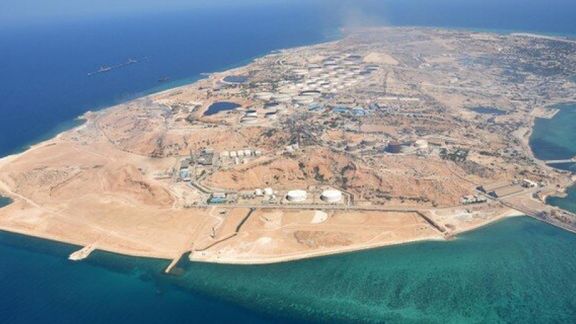
Iranian public figures are condemning local hardline media that support Russia's position questioning Iran's sovereignty over three islands in the Persian Gulf.
Russia's undermined Iran's territorial integrity by signing a joint Persian Gulf Cooperation Council (GCC) statement last week, suggesting that the ownership of the islands should be reviewed by the International Court of Justice. This action sparked a huge outcry in Iran and among diaspora Iranians, with some considering Russia's move as treason.
The Raisi administration-owned daily newspaper, Iran, on July 13 accused media outlets that condemned Russia's humiliating stance of creating unnecessary controversy. The newspaper also charged that the anti-Russian articles in the Iranian media were written under the order of the United States.
Maryam Shokrani, a journalist in Tehran who had been threatened a few months earlier by intelligence agents, expressed her views in Threads, stating, "Its name is 'Iran' newspaper, but it supports Russia. That is the same Russia that not only does not recognize Iran's ownership of the three islands, but also uses the terms 'The Gulf' and 'The Arabian Gulf' in its official accounts instead of the Persian Gulf."
The three islands were under British control but on November 30, 1971, a day after British forces left the region and just two days before the UAE was to become an official federation, Mohammad Reza Shah sent the Iranian navy to secure all three. Iranian forces remain on the islands, with only Abu Musa having a civilian population which is less than two thousand. But the United Arab Emirates has been contesting Iran’s sovereignty.
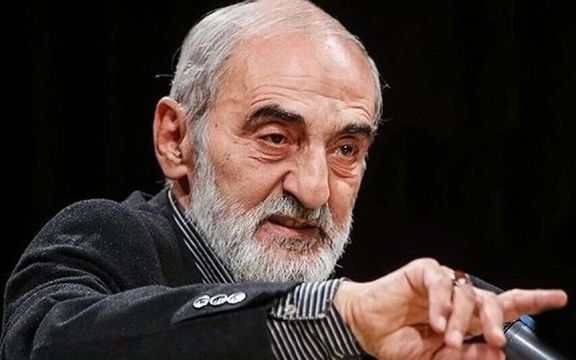
On Monday, ultraconservative daily Kayhan's editor Hossein Shariatmadari wrote in a commentary that those, including many former diplomats who have criticized Tehran's pro-Russia and pro-China foreign policy, are demanding too much from the government.
Kayhan defended the government's relative inaction in response to Russia's behavior and added that Iran could not possibly declare war against Russia or sever its ties with Moscow. Shariatmadari's article, particularly his attacks on the country's reformists who criticized Russia, was perceived as siding with Moscow by Iranian media both in and out of Iran.
Shariatmadari accused Russia's critics of selling out their country to the United States and said that the former diplomats who have criticized Russia are suffering from a feeling of inferiority in front of the United States. Meanwhile, he accused former Foreign Minister Javad Zarif of having been prepared to start negotiations with the UAE over the islands' ownership.
Another ultraconservative newspaper, Hamshahri, which is affiliated with the Tehran Municipality, expressed support for Russia's position and even endorsed Moscow's war against Ukraine during the past week. The daily argued that Ukraine should not have defended itself against Russia's onslaught.
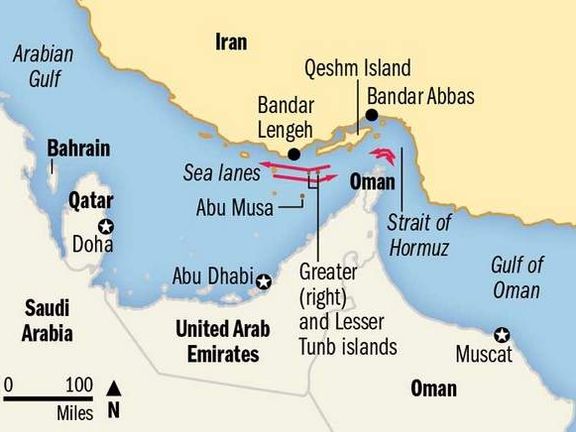
Sara Massoumi, another Iranian journalist, criticized Iran newspaper's approach, stating, "It is shameful that a newspaper that still remembers the Iran-Iraq war and its chemically wounded veterans is so fascinated by Russia that it portrays the aggressor in the Ukraine war as the victim."
Meanwhile, in an article in Etemad Online website, reformist politician Esmail Gerami Moghaddam wrote that Iranian conservatives' Looking East policy is against the country's national interests. He also called for an appropriate and proportional reaction on the part of the Iranian government to Russia's behavior.
Calling on the Iranian government to adopt logical positions and carry out a balanced foreign policy, Moghaddam asked, "What makes you believe that Russia is superior to the United States so that you defend it so wholeheartedly?"
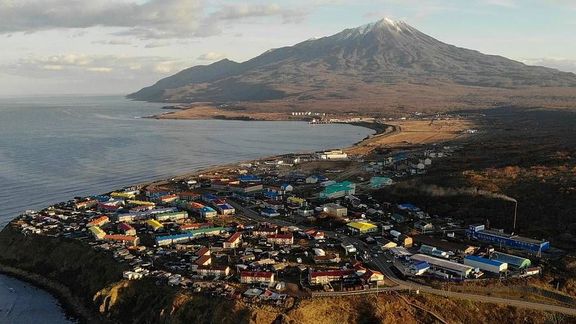
Feeling betrayed by Moscow’s support for UAE’s claim on three Iranian islands, a top official in Tehran has backed Japan’s demand for talks over the Kuril Islands.
During a meeting with Japan’s ambassador to Iran Aikawa Kazutoshi, Kamal Kharrazi, the head of Iran’s Strategic Council on Foreign Relations and a foreign policy advisor to Supreme Leader Ali Khamenei, said that the best way to resolve the territorial dispute between Japan and Russia over the four islands is through “direct negotiations.”
At the end of World War II, Russia annexed the Kuril Islands in the Pacific Ocean to its territory, but Japan calls these islands the Northern Territory and considers them “occupied by Russia.”
Talking about the Russian invasion of Ukraine and the possible consequences of the crisis for Japan and its surrounding environment, the Japanese envoy said that since the war has started, Russia has halted bilateral negotiations with Japan regarding the occupation of the Kuril Islands.
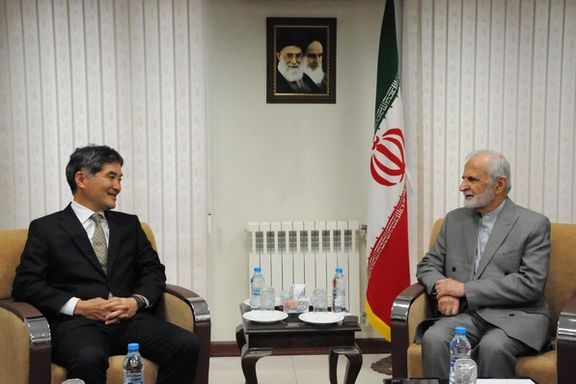
Kharrazi stated that as a matter of principle, Tehran is against any military intervention and violation of the sovereignty and territorial integrity of countries, and the best solution is bilateral talks to resolve the Kuril islands dispute.
This was exactly the position Russia took last week regarding three Iranian islands in the Persian Gulf contested by the United Arab Emirates.
In a joint Russia-GCC statement at a meeting, held in Moscow on July 10, Russia voiced support for the UAE's demand to hold talks about sovereignty over Greater Tunb, Lesser Tunb, and Abu Musa Iranian islands.
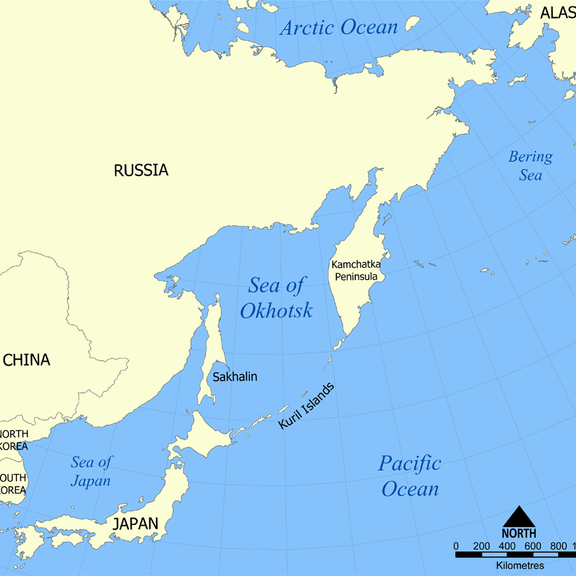
The statement called for "bilateral negotiations or the International Court of Justice, in accordance with the rules of international law and the United Nations Charter, to resolve this issue in accordance with international legitimacy".
Iranian media, opposition activists and ordinary Iranians were outraged over Moscow’s move and viewed the regime’s reactions not strong enough.
Qasem Mohebbali, a former senior diplomat who headed the Middle East division of the foreign ministry, criticized the regime’s pro-Russia and anti-West foreign policy as the reason why Iran’s allies are teaming up with its regional rivals, noting that Russia and China believe that no matter what they say or do, Tehran will continue to support them over Ukraine, Tibet and Taiwan.
Mohebbali said that China and Russia care more about their relations with Arab countries than with Iran. “Apparently, Iran's friends do not pay much attention to Iran's demands and pay more attention to the rivals’ [Arab] demands,” he said.
In its Thursday edition, conservative newspaper Jomhouri Eslami wrote in a strongly worded editorial: "This is not going to be Russia's last treason against Iran." The daily added: "Foreign Ministry officials should not think that this episode will end by summoning Russia's ambassador. We need an essential revision of our political relations with Russia and forcing Russian statesmen to regret their treason against the Iranian nation."
Asked why Moscow undermined Iran's territorial integrity," international relations analyst Mehdi Motaharnia told Khabar Online that "Russia wishes to put an end to its isolation by sacrificing Iran's interests." Meanwhile, he called Iranian officials' mild reaction "a withdrawal from revolutionary positions."
The Foreign Ministry summoned Russia's ambassador and Foreign Minister Hossein Amir-Abdolahian and government spokesman Ali Bahadori wrote in separate tweets that "Iran will not compromise over its national interests and territorial integrity." However, Tehran’s official reaction to Russia has been meek. Social media users said officials had indeed made a compromise by not naming Russia in their tweets.
Vowing “a strong response” to such moves, foreign ministry spokesman Naser Kanaani said that Iran “views the interference of any party, including the UAE and Russia, as unacceptable and rejects it.
The United Arab Emirates has repeatedly laid claim to the islands, describing the situation as “the continued occupation by the Islamic Republic of Iran.”
The three islands fell under British control in 1921 but on November 30, 1971, a day after British forces left the region and just two days before the UAE was to become an official federation, Mohammad Reza Shah sent the Iranian navy to secure all three. Iranian forces remain on the islands, with only Abu Musa having a civilian population which is less than two thousand.

The Iranian president is focusing on securing drone sales in return for food during his latest trip to Africa.
According to Kayhan newspaper, affiliated with Supreme Leader Ali Khamenei's office, President Raisi is working on “extraterritorial cultivation, export of products such as drones and cars, petrochemical products, as well as technical exports".
The latest revelations will come as no shock, the barter deals of the heavily sanctioned regime the only way it can muddle through its current crisis, calling in favors from its dictatorial allies around the world from South America to Africa.
Iran has been providing drones to guerrilla groups across the Middle East for decades, and most recently, has supported Russia's invasion of Ukraine with hundreds of Shahed drones used in large scale missile attacks.
Only in March, Omar Hilal, Morocco’s ambassador to the United Nations, warned: “Iran, after undermining the stability of Syria, Yemen, Iraq and Lebanon, is in the process of destabilizing our region."
Concerns for Iran's involvement in Africa are also high. In October, the US State Department said Iran sent Ethiopia armed drones in the summer of 2021 in violation of a standing UN Security Council resolution.
The United States and its European allies have imposed a series of sanctions on Iranian individuals and companies involved with the drone program and shipments of the weapon to Russia.
Iran first denied it had supplied the drones but in early November foreign minister Hossein Amir-Abdollahian admitted the deliveries, while claiming they were sent before the Russian invasion.